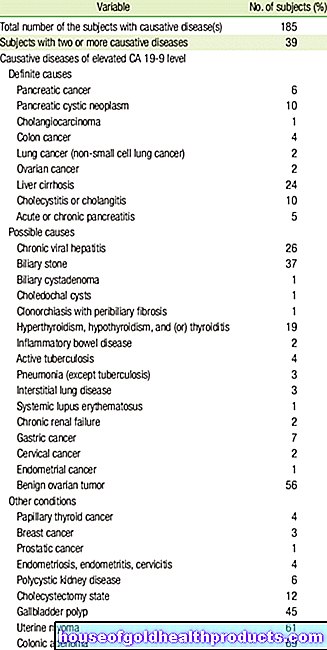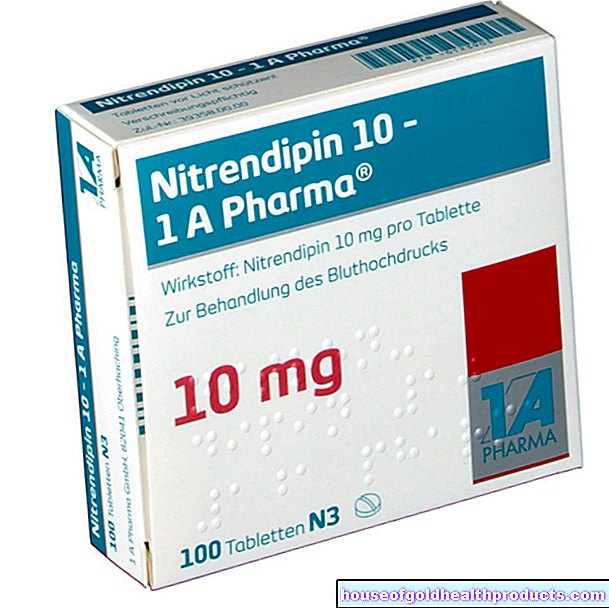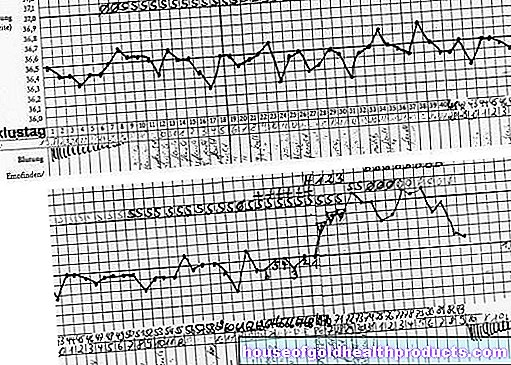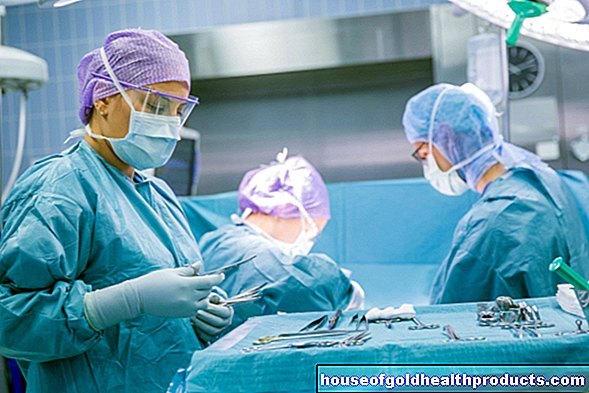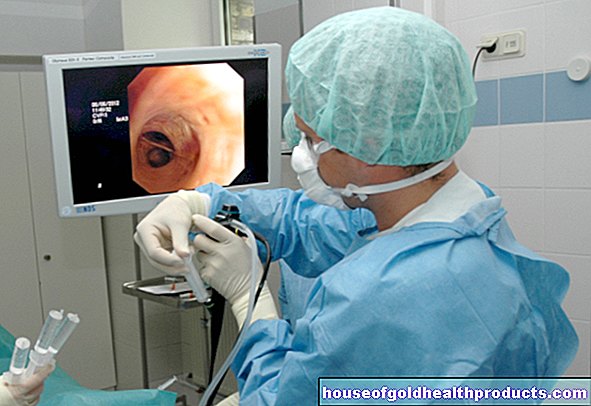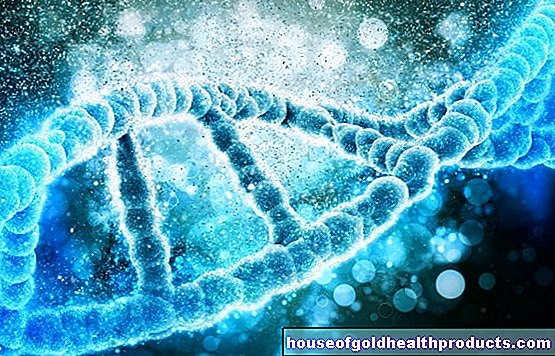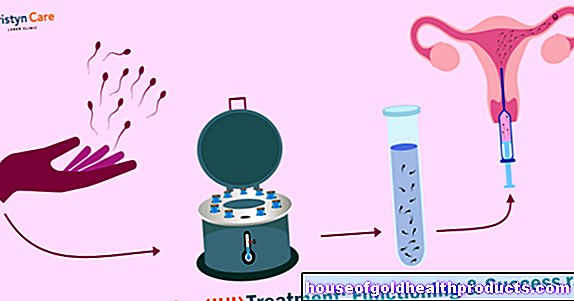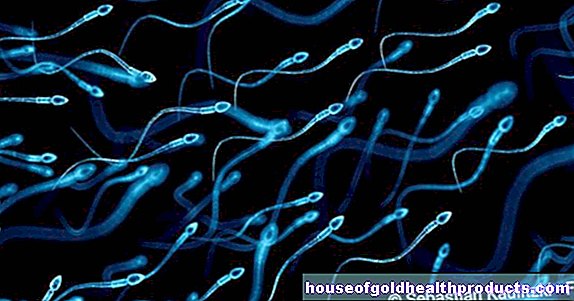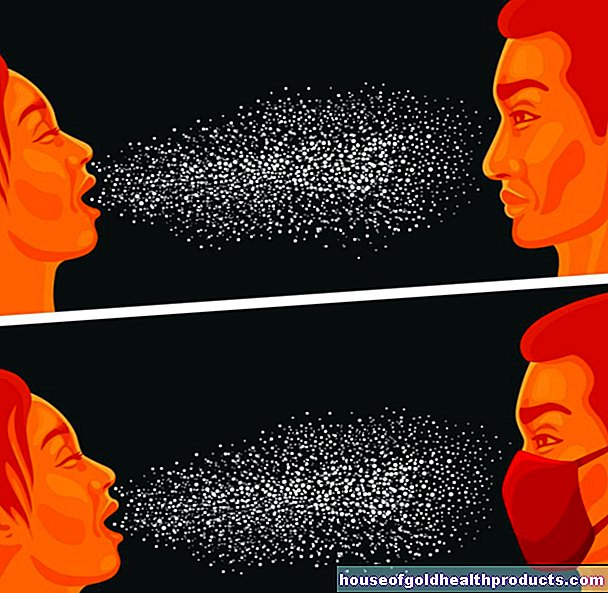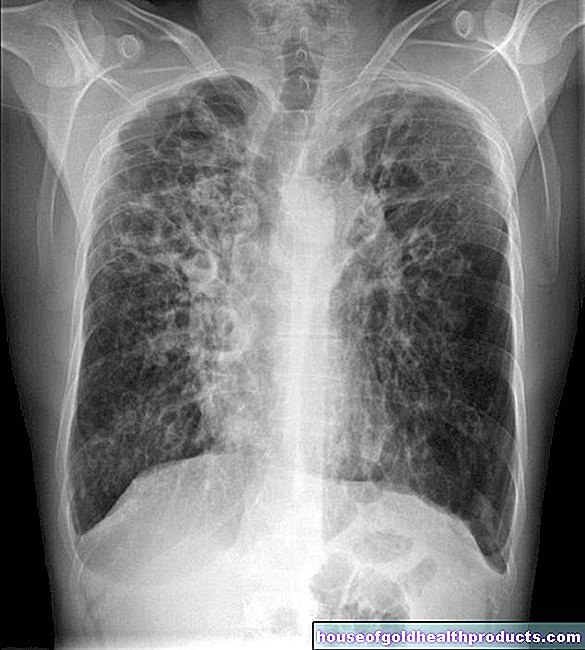Cancer Protection - Aspirin for Everyone?
All content is checked by medical journalists.Acetylsalicylic acid can apparently prevent the formation of cancerous tumors. So is it advisable for a healthy person to swallow tablets every day?
There is a lot of research going on and at great expense to keep tumors in check. Now it turns out that an old friend of all people could be an effective as well as inexpensive means against cancer: acetylsalicylic acid (ASA) - more commonly known under the trade name “aspirin”. Taken daily, the active ingredient presumably prevents the development of many tumors.
Prevent cancer with ASA
Such an inexpensive and effective means of prevention would be most welcome. "There is increasing evidence that taking aspirin can help reduce various types of cancer," says Professor Peter Elwood from Cardiff University, who has explored the effectiveness of ASA in this regard in a recent study.
As early as 2011, a meta-analysis of various studies showed that the risk of dying from cancer for people who took aspirin daily for four or more years was reduced by up to 20 percent. Colon tumors in particular were less common, but also lung cancer, breast cancer, esophageal cancer and prostate cancer. But what kind of mechanism could be behind it?
Less inflammation, less cancer
Researchers suspect that ASA's anti-cancer effect is because it blocks two enzymes: COX-1 and COX-2. They play a central role in inflammatory processes. These are constantly going on unnoticed in the body. They are necessary to remove sick and dead cells. However, if the inflammatory process in the body is increased in the long term, the risk that the DNA of cells will be damaged also increases: the first step in the development of degenerate cells that turn into cancer cells.
Despite the many indications of the anti-cancer effect, the scientific world hesitates to recommend unrestricted use of the painkillers. One reason for this is that by no means all studies come to the same conclusion. And: Most studies are methodologically rather weak. They are purely observational studies in which the participants were asked retrospectively. However, data obtained in this way are often falsified by a distorted memory of the participants. And it cannot be determined whether taking aspirin actually reduced the risk of cancer, or not an unknown factor that influences both.
Above all, however, it is unclear who would actually benefit from daily swallowing aspirin and which dose would have the best possible effect with the least possible undesirable side effects.
Persistent headache and bleeding
Because of course there are too. In some people, the regular intake of ASA, but also other pain relievers, paradoxically causes headaches. Experts call this “drug-induced headache”. The blood-thinning effect of acetylsalicylic acid is even more serious. Those who take it increase their tendency to bleed - especially in the gastrointestinal tract, but also for cerebral haemorrhage. It must also be discontinued in good time before operations.
Despite these concerns, aspirin is already being swallowed regularly by many people. Not only as a pain reliever and anti-inflammatory, but also to prevent heart attacks and strokes. Because the blood-thinning effect also has its good side: It counteracts the formation of blood clots. In addition, the braking effect of ASA on inflammatory processes keeps the blood vessels healthy: It protects against arteriosclerosis, in which the blood vessels narrow due to deposits. Nevertheless: Whether for protection against cancer or for the heart - healthy people generally recommend aspirin as a long-term medication, it is still too early for that.
Aspirin prevents metastases
The verdict could be different when it comes to people who are already sick. And there are a few of these, because the comfortable life in the industrialized nations has its price: Due to the increased life expectancy - coupled with an unhealthy lifestyle - cancer diseases, among other things, are steadily increasing.
Such cancer patients were the subject of a total of 47 different studies that Peter Elwood and his team evaluated. Using the combined data sets, the researchers were able to show that patients who had taken aspirin succumbed to 15 to 20 percent less than those who had not taken aspirin.
Concern that aspirin could have caused dangerous bleeding also turned out to be unfounded. “We wrote to all study authors and asked them for relevant data. There was no life-threatening bleeding in a single study, ”says Elwood.
Even if there is still some need for clarification, the researcher advises: "We recommend cancer patients to speak to their doctors about the results and to clarify with them whether they should take a low aspirin dose as part of their cancer therapy."
And there is another group of people to whom at least US experts recently recommended lifelong intake of low-dose ASA: People between 50 and 69 years of age who are at higher risk for cardiovascular diseases but do not have an increased tendency to bleed.
Sources:
Peter C Elwood: Aspirin in the treatment of cancer: reductions in metastatic spread and in mortality: a systematic review and meta-analyzes of published studies. PLOS ONE, http://dx.plos.org/10.1371/journal.pone.0152402
National Cancer Institute: No Easy Answers about Whether Aspirin Lowers Cancer Risk, http://www.cancer.gov, updated April 9, 2015
Kirsten Bibbins-Domingo: Aspirin Use for the Primary Prevention of Cardiovascular Disease and Colorectal Cancer: U.S. Preventive Services Task Force Recommendation Statement: Ann Intern Med. Published online 12 April 2016 doi: 10.7326 / M16-0577





